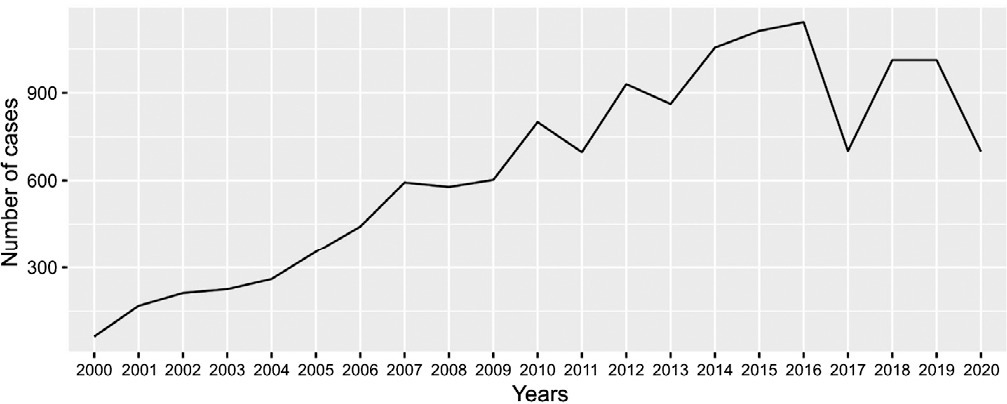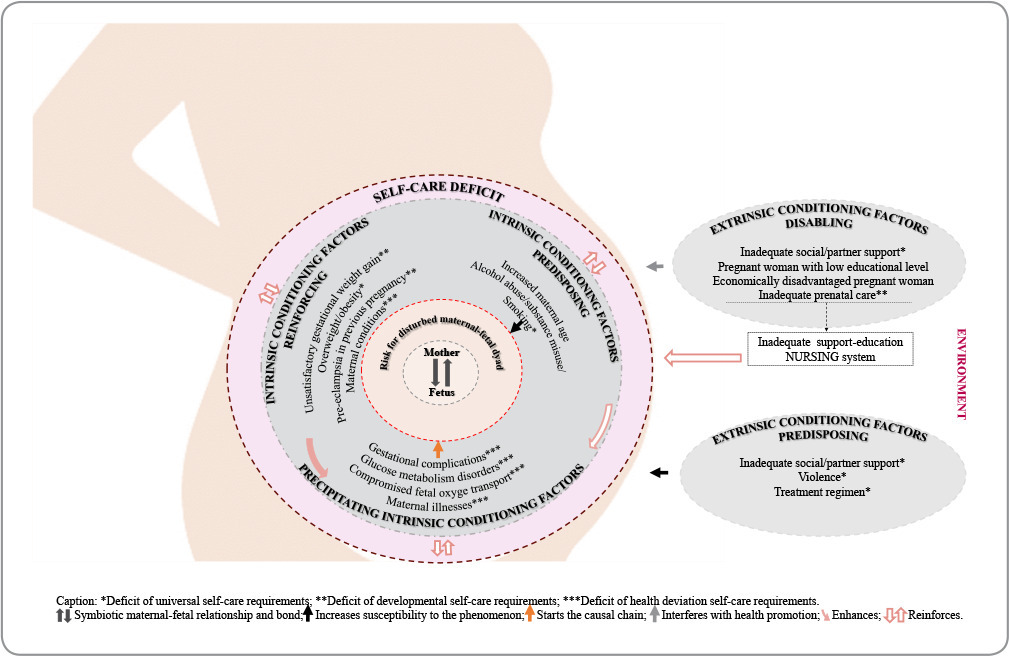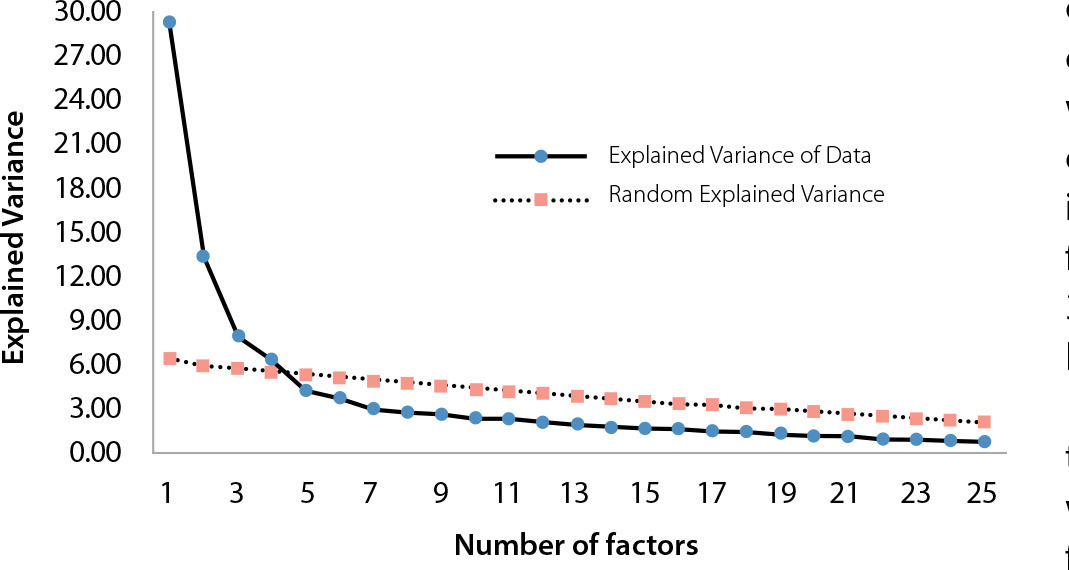-
ORIGINAL ARTICLE07-29-2024
Contribution of informal caregivers to self-care in individuals with heart failure
Revista Brasileira de Enfermagem. 2024;77(3):e20230492
Abstract
ORIGINAL ARTICLEContribution of informal caregivers to self-care in individuals with heart failure
Revista Brasileira de Enfermagem. 2024;77(3):e20230492
DOI 10.1590/0034-7167-2023-0492
Views0See moreABSTRACT
Objectives:
to evaluate the contribution of informal caregivers to the self-care of individuals with heart failure.
Methods:
a cross-sectional study was conducted with 87 caregivers from March to October 2022 in the city of João Pessoa/PB. The caregivers’ contribution was assessed using the Caregiver Contribution to Self-Care of Heart Failure Index instrument. Scores ≥ 70 points indicate adequate contribution. Data were analyzed using descriptive statistics and Spearman’s correlation.
Results:
the sample consisted of 81.6% female caregivers. Median scores obtained for the self-care contribution scales were: 63.3 for maintenance; 55.5 for management; and 66.6 for confidence. Caregivers never or rarely recommended monitoring body weight, regular physical exercise, extra use of diuretics, and fluid restriction.
Conclusions:
informal caregivers showed inadequate contribution in the areas of maintenance, management, and confidence in self-care of individuals with heart failure.
-
07-29-2024
Reflections on theoretical framework use in nursing research
Revista Brasileira de Enfermagem. 2024;77(3):e20230486
Abstract
Reflections on theoretical framework use in nursing research
Revista Brasileira de Enfermagem. 2024;77(3):e20230486
DOI 10.1590/0034-7167-2024-0486
Views0See moreABSTRACT
Objectives:
to reflect on theoretical framework use in nursing research.
Methods:
a theoretical-reflexive study, based on concepts and constructs pertinent to using nursing theories and other sciences, considering issues of epistemology or philosophy of science.
Results:
we presented what it is and why to do nursing research and what a theoretical framework is and why to use it, in addition to some considerations regarding theoretical framework use in nursing research, essential for constructing disciplinary knowledge, which enables the materialization of researchers’ work and the presentation of propositions resulting from investigations in and for nursing as a discipline and science.
Final Considerations:
based on a reflection based on epistemological conceptions, it is possible to affirm that a theoretical framework is the core of researchers’ thinking, delimiting a problem to be investigated and, based on it, outlining methodological strategies to be followed, supporting nursing action and thinking as discipline and science.

-
REVIEW07-29-2024
Nursing diagnoses for people hospitalized with heart failure: an integrative review
Revista Brasileira de Enfermagem. 2024;77(3):e20230471
Abstract
REVIEWNursing diagnoses for people hospitalized with heart failure: an integrative review
Revista Brasileira de Enfermagem. 2024;77(3):e20230471
DOI 10.1590/0034-7167-2023-0471
Views0See moreABSTRACT
Objectives:
to identify in the literature the main nursing diagnoses according to the NANDA-I diagnostic classification for people hospitalized with heart failure.
Methods:
an integrative literature review, carried out in February 2019 and updated in July 2023, in the MEDLINE via PubMed, LILACS, SciELO and CINAHL databases. Given the use of acronym PEO, studies without a time cut in Portuguese, English and Spanish were included. Descriptive analysis was carried out to present the identified information.
Results:
analysis of 27 articles identified 24 nursing diagnoses, with emphasis on Decreased Cardiac Output, Excessive Fluid Volume, Decreased Activity Tolerance and Fatigue.
Final Considerations:
evidence can contribute to better diagnostic decisions centered on people with heart failure in search of more assertive health results and have the potential to support future studies on a possible syndromic pattern in this population.

-
ORIGINAL ARTICLE07-29-2024
Primary Health Care in transitional care of people with stroke
Revista Brasileira de Enfermagem. 2024;77(3):e20230468
Abstract
ORIGINAL ARTICLEPrimary Health Care in transitional care of people with stroke
Revista Brasileira de Enfermagem. 2024;77(3):e20230468
DOI 10.1590/0034-7167-2024-0468
Views0See moreABSTRACT
Objectives:
to understand the role of Primary Health Care teams in caring for people with stroke after hospital discharge.
Methods:
single case study, with integrated units of analysis, with a qualitative approach. Data triangulation occurred through interviews with professionals and family caregivers involved in transition of care, in addition to direct observations in rounds and document analysis. For the analyses, the analytical strategies of theoretical propositions and construction of explanations were used, with the help of ATLAS.ti®.
Results:
the importance of counter-referral, the role of community health workers and the multidisciplinary team, health promotion, secondary prevention, home visits as a visceral attribute and nurses as care managers are evident.
Final Considerations:
the high demand on teams and the Social Determinants of Health interfere with adequate continuity of care. Transitional care programs that enable continuity of care are recommended.
-
ORIGINAL ARTICLE07-29-2024
Completeness of variables in Hospital-Based Cancer Registries for prostatic malignant neoplasm
Revista Brasileira de Enfermagem. 2024;77(3):e20230467
Abstract
ORIGINAL ARTICLECompleteness of variables in Hospital-Based Cancer Registries for prostatic malignant neoplasm
Revista Brasileira de Enfermagem. 2024;77(3):e20230467
DOI 10.1590/0034-7167-2023-0467
Views0See moreABSTRACT
Objectives:
to analyze the completeness of variables from Hospital-Based Cancer Registries of cases of prostate neoplasm in the Oncology Care Network of a Brazilian state between 2000 and 2020.
Methods:
an ecological time series study, based on secondary data on prostate cancer Hospital-Based Cancer Registries prostate. Data incompleteness was classified as excellent (<5%), good (between 5%-10%), fair (10%-20%), poor (20%-50%) and very poor (>50%), according to the percentage of lack of information.
Results:
there were 13,519 cases of prostate cancer in the Hospital-Based Cancer Registries analyzed. The variables “family history of cancer” (p<0.001), “alcoholism” (p<0.001), “smoking” (p<0.001), “TNM staging” (p<0.001) had a decreasing trend, while “clinical start of treatment” (p<0.001), “origin” (p=0.008) and “occupation” (p<0.001) indicated an increasing trend.
Conclusions:
most Hospital-Based Cancer Registries variables showed excellent completeness, but important variables had high percentages of incompleteness, such as TNM and clinical staging, in addition to alcoholism and smoking.

-
ORIGINAL ARTICLE07-29-2024
Disrupted mother-fetus dyad risk in high-risk pregnancies: a Middle-Range Theory
Revista Brasileira de Enfermagem. 2024;77(3):e20230464
Abstract
ORIGINAL ARTICLEDisrupted mother-fetus dyad risk in high-risk pregnancies: a Middle-Range Theory
Revista Brasileira de Enfermagem. 2024;77(3):e20230464
DOI 10.1590/0034-7167-2023-0464
Views0See moreABSTRACT
Objectives:
to develop and evaluate a Middle-Range Theory for the nursing diagnosis “Disrupted Mother-Fetus Dyad Risk” in high-risk pregnancies.
Methods:
this methodological study was conducted in two stages: theory development and evaluation. Dorothea Orem’s General Nursing Model was used as the theoretical-conceptual foundation. Evaluation was conducted using the Delphi method with seven judges, and consensus was achieved when the Content Validity Index of the evaluated items was ≥ 0.80.
Results:
the theory identified 20 elements of the nursing diagnosis “Disrupted Mother-Fetus Dyad Risk” (10 risk factors, 4 at-risk populations, and 6 associated conditions), 14 propositions, and 1 pictogram. After two rounds of evaluation, the theory was considered consistent, with consensus reached for all items, each achieving a Content Validity Index ≥ 0.80.
Conclusions:
the Middle-Range Theory included biopsychosocial factors explaining the nursing phenomenon “Disrupted Mother-Fetus Dyad Risk,” which aids in nurses’ diagnostic reasoning.

-
ORIGINAL ARTICLE07-29-2024
Mental health of parents of children and adolescents who require special health care
Revista Brasileira de Enfermagem. 2024;77(3):e20230457
Abstract
ORIGINAL ARTICLEMental health of parents of children and adolescents who require special health care
Revista Brasileira de Enfermagem. 2024;77(3):e20230457
DOI 10.1590/0034-7167-2023-0457
Views0See moreABSTRACT
Objective:
To identify the manifestations presented by parents of children and adolescents who require special health attention that can impact their mental health.
Methods:
exploratory, qualitative research, based on the concept of vulnerability, with data collection carried out through interviews with 18 parents of children and adolescents with special health care needs, hospitalized in the pediatric ward of a hospital in Paraná, between May/2017 and May/ 2018. Data analyzed by inductive thematic analysis.
Results:
parents experienced situations of vulnerability when providing care at home, with repercussions on their mental health, expressed by manifestations of lack of protection, anxiety and depression.
Final considerations:
It is important that health professionals seek to expand actions to promote care and reduce situations that generate threats, insecurities, concerns and damage to the health of parents, which can impact and further weaken care for children and adolescents who need attention especially health.
-
ORIGINAL ARTICLE07-29-2024
Evidence of validity of the Risk Self-Medication Questionnaire focused on Health Literacy
Revista Brasileira de Enfermagem. 2024;77(3):e20230386
Abstract
ORIGINAL ARTICLEEvidence of validity of the Risk Self-Medication Questionnaire focused on Health Literacy
Revista Brasileira de Enfermagem. 2024;77(3):e20230386
DOI 10.1590/0034-7167-2023-0386
Views0See moreABSTRACT
Objectives:
to analyze the validity evidence of the internal structure of the Risk Self-Medication Questionnaire Focused on Health Literacy.
Methods:
a psychometric study with 499 adults. The internal structure was assessed with exploratory and confirmatory factor analysis to prove the adjustment. Internal consistency was measured by composite reliability and McDonald’s omega coefficient (ω).
Results:
the parameters revealed a model of 35 items distributed across four factors, explaining 56% of the total variance, with factor loadings ranging from 0.31 to 0.85 and adequate communalities. Accuracy (0.79
Conclusions:
an instrument was obtained with good evidence of structural validity for measuring self-medication.

-
ORIGINAL ARTICLE07-08-2020
Patient safety: perception of family members of hospitalized children
Revista Brasileira de Enfermagem. 2020;73(5):e20190525
Abstract
ORIGINAL ARTICLEPatient safety: perception of family members of hospitalized children
Revista Brasileira de Enfermagem. 2020;73(5):e20190525
DOI 10.1590/0034-7167-2019-0525
Views0See moreABSTRACT
Objectives:
to know the meaning attributed by family members to the health safety of pediatric patients, with attention to the possibilities of their collaboration.
Methods:
this qualitative study was conducted with eighteen family members of children hospitalized in a pediatric unit, from January to July 2018. Symbolic Interactionism was used as a theoretical framework, and Inductive Content Analysis as method.
Results:
child hospitalization poses risks to possible incidents and adverse events. Participants and professionals are responsible for patient safety. Thus, their actions focus on error prevention. Therefore, they seek information and observe in a vigil way professional care in classic aspects of safety. They conceive essential and favoring safety the approach centered on children and family members.
Final Considerations:
family members recognized the chances of errors and care damage, identified themselves as support in minimizing damage and were in partnership with the professional, increasing chances of effecting safety.
-
ORIGINAL ARTICLE02-10-2020
Motivation and difficulties to reduce or quit smoking
Revista Brasileira de Enfermagem. 2020;73(1):e20180188
Abstract
ORIGINAL ARTICLEMotivation and difficulties to reduce or quit smoking
Revista Brasileira de Enfermagem. 2020;73(1):e20180188
DOI 10.1590/0034-7167-2018-0188
Views0See moreABSTRACT
Objective:
To understand what factors motivate people to reduce or stop tobacco use and what difficulties they face in this process.
Method:
Qualitative, empirical and interpretative research that used a focal group technique for data collection and Discourse Analysis as a theoretical reference for analysis.
Results:
The responses centered on the following aspects: motivation for reduction or cessation of smoking, family and community support received during treatment, benefits from cessation of tobacco, difficulties encountered and strategies for overcoming triggers.
Final Considerations:
The results showed that the users expressed their desire for cessation of tobacco use and that to achieve this goal, family and group support, professional help and changing habits are key factors for this process.
-
08-20-2021
Historicity of nursing graduate studies in Brazil: an analysis of the Sociology of the Professions
Revista Brasileira de Enfermagem. 2021;74(6):e20190827
Abstract
Historicity of nursing graduate studies in Brazil: an analysis of the Sociology of the Professions
Revista Brasileira de Enfermagem. 2021;74(6):e20190827
DOI 10.1590/0034-7167-2019-0827
Views0See moreABSTRACT
Objectives:
to analyze the scientific productions about the history of graduate studies in Brazilian nursing in the light of Eliot Freidson’s Sociology of the Professions.
Methods:
an integrative review, carried out in the databases indexed in Virtual Health Library. The Preferred Reporting Items for Systematic Reviews and Meta-Analyses recommendations were followed. Thematic content analysis and Eliot Freidson’s concepts were adopted.
Results:
two categories emerged: “Institutionalization of graduate courses in Brazilian nursing”, highlighting the historical process of professionalization in nursing through transition from empirical to professional care, subsidized by the monopoly of the construction of one’s own knowledge; “The scientific production of graduate nursing in Brazil”, showing the strengthening of a new generation of nurse researchers, given the greater scientificity in teaching due to implementation of graduate studies.
Final Considerations:
the analyzes present the historicity of graduate studies’ institutionalization, supporting the understanding of professionalization outlines of Brazilian nursing.

-
ORIGINAL ARTICLE12-21-2020
Knowledge and practices of nursing professionals in caring for ostomates
Revista Brasileira de Enfermagem. 2020;73:e20200018
Abstract
ORIGINAL ARTICLEKnowledge and practices of nursing professionals in caring for ostomates
Revista Brasileira de Enfermagem. 2020;73:e20200018
DOI 10.1590/0034-7167-2020-0018
Views0See moreABSTRACT
Objective:
to analyze the knowledge and practices of nursing professionals in caring for people with colostomy bag.
Method:
a qualitative and descriptive study conducted with 21 nursing professionals from a General Surgery Unit. Data collection used triangulation of techniques, based on non-participant observation, analysis of nursing records, and semi-structured interviews. Analysis followed the spiral technique assumptions.
Results:
it was possible to comprehend the theoretical and scientific knowledge that subsidize practice; identify contradictions related to statement and care in the profession’s daily work and the intervening factors, which can facilitate and/or make the nursing care process difficult.
Final Considerations:
knowledge and practices of professionals in caring for ostomates occur within work experiences, in which socialization of knowledge makes it possible to expand the perspectives of care.
-
REFLECTION04-03-2020
Environmental health: emancipatory care challenges and possibilities by the nurse
Revista Brasileira de Enfermagem. 2020;73(3):e20180478
Abstract
REFLECTIONEnvironmental health: emancipatory care challenges and possibilities by the nurse
Revista Brasileira de Enfermagem. 2020;73(3):e20180478
DOI 10.1590/0034-7167-2018-0478
Views0See moreABSTRACT
Objectives:
to discuss challenges and possibilities for the construction of Environmental Health emancipatory care practices by the nurse.
Methods:
reflective analysis based on conceptual, theoretical, and methodological aspects of nursing care, under the emancipatory and critical perspective.
Results:
contemporary environmental issues involve complex determinants of the health-disease process. This fact requires the accomplishment of educative actions that encourage the change of environmental attitudes related to health-risk situations. In this sense, there are significant demands for emancipatory practices of primary care in Environmental Health by nurses, which need to be systematized by health and education institutions.
Final considerations:
the nurse, as an educator and social actor, should offer emancipatory practices of risk management, empowerment, and shared social and environmental responsibility, with a view to recovering an ecological well-being and social transformation, to improve environmental quality and human life.
-
ORIGINAL ARTICLE09-16-2019
Playful educational intervention with schoolchildren on intestinal parasitosis
Revista Brasileira de Enfermagem. 2019;72(5):1203-1210
Abstract
ORIGINAL ARTICLEPlayful educational intervention with schoolchildren on intestinal parasitosis
Revista Brasileira de Enfermagem. 2019;72(5):1203-1210
DOI 10.1590/0034-7167-2017-0551
Views0See moreABSTRACT
Objective:
To analyze the playful educational interventions in the knowledge of schoolchildren about intestinal parasitosis.
Method:
This is a quasi-experimental, non-randomized study, based on pre- and post-intervention, conducted in a public elementary school in a peripheric neighborhood in the city of Ribeirão Preto (SP). The study population consisted of 101 students enrolled in the 5th and 6th grade. For comparison, we used the generalized version of the McNemar chi-squared test.
Results:
Of the 101 schoolchildren who participated in the study, 48 (47.5%) were female and 53 (52.5%) were male, aged from 9 to 14 years. Students’ knowledge on intestinal parasitic infections has increased significantly after the playful educational intervention.
Conclusion:
Playful educational interventions are an excellent didactical resource in the teaching-learning process of schoolchildren.
-
ORIGINAL ARTICLE12-13-2019
Self-care deficits in women with leg ulcers and sickle cell disease
Revista Brasileira de Enfermagem. 2019;72:72-78
Abstract
ORIGINAL ARTICLESelf-care deficits in women with leg ulcers and sickle cell disease
Revista Brasileira de Enfermagem. 2019;72:72-78
DOI 10.1590/0034-7167-2018-0005
Views0See moreABSTRACT
Objective:
to identify self-care deficits in women with leg ulcers and sickle cell disease.
Method:
a qualitative, descriptive, exploratory approach with 14 women. The collection was performed from December 2015 to January 2016, while the analysis was supported by Orem’s Self-Care Deficit Theory.
Results:
self-care requirements are not fully met. The following were identified as universal: balance between loneliness and social interaction, rest and proper nutrition; development: inability to perform work, abrupt changes in the environment due to hospitalization, educational deprivation and dropout; health deviations: ulcer recurrences, pain, changes in skin appearance and gait changes.
Conclusion:
nursing care for women with leg ulcers and sickle cell disease requires planned actions for comprehensive care.
-
EXPERIENCE REPORT02-05-2021
Paulo Freire’s culture circles: contributions to nursing research, teaching, and professional practice
Revista Brasileira de Enfermagem. 2021;74(1):e20190626
Abstract
EXPERIENCE REPORTPaulo Freire’s culture circles: contributions to nursing research, teaching, and professional practice
Revista Brasileira de Enfermagem. 2021;74(1):e20190626
DOI 10.1590/0034-7167-2019-0626
Views0See moreABSTRACT
Objectives:
to share the contributions of culture circles for teaching, research, and professional nursing practice, having as framework Paulo Freire’s Research Itinerary.
Methods:
this is an experience report of a culture circle, with participation of three professors and ten students, enrolled in a course of a Graduate Program in Nursing in southern Brazil. In this culture circle, a tree was built in which the roots formed the thematic investigation, the stem, coding and decoding, and the leaves, the Research Itinerary critical unveiling.
Results:
participants demonstrated empowerment of Paulo Freire’s assumptions, and building a tree made it possible to discuss in a pleasant and playful way culture circle use in teaching, research, and professional nursing practice.
Final Considerations:
the culture circle promoted reflection and action on nursing praxis, turning Freirean thoughts into something concrete and transforming realities.

Search
Search in:
Nuvem de Tags
Adolescente (85) Atenção Primária à Saúde (239) COVID-19 (91) Criança (91) Cuidados de Enfermagem (269) Educação em Enfermagem (151) Educação em Saúde (139) Enfermagem (930) Enfermagem Pediátrica (86) Estudantes de Enfermagem (77) Estudos de Validação (131) Família (87) Idoso (208) Promoção da Saúde (99) Qualidade de Vida (104) Saúde do Trabalhador (86) Saúde Mental (145) Saúde Pública (82) Segurança do Paciente (150) Tecnologia Educacional (100)



